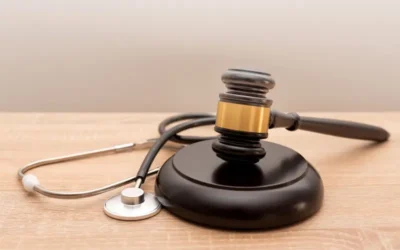Long-term care is the practical option for aged loved ones when their medical needs cannot be met at home. Nursing homes take care of the aged patients – monitoring their daily food intake, medication administration, providing physical therapy and so on. However, negligence is common in nursing homes, and this triggers nursing home abuse lawsuits. Nursing home injury litigation involves claims originating from nursing home neglect or abuse, and alleging that the nursing home and its medical staff were negligent by not rendering proper care to a resident. In other words, the nursing home failed to comply with the applicable standard of care. Medical record review, which is an important primary requirement in such negligence cases, has to be performed for thousands of medical records.
What are the types of nursing homing abuse that trigger lawsuits?
The following are the common types of nursing home abuse cases for which attorneys consider the service of a medical review company.
- Injury from falls: Many elderly nursing home residents have some health condition that makes them prone to falls. When the staff is not careful enough to supervise them properly, they may fall and get injured.
- Pressure sores: Bedridden elderly patients are at the risk of developing pressure sores. They need close skin monitoring and frequent position changes. If this is not done properly, pressure sores can develop and get worse. This would be considered negligence on the part of the nursing home staff.
- Lack of proper care and supervision: Long-term rehabilitation centers and nursing homes accommodate elderly and sick patients who require the same care and treatment that is provided in a hospital. If the nursing home staff fails to provide the same standard of care, they could face a medical negligence lawsuit.
- Physical abuse: Some nursing home staff can be quite aggressive, and physically abuse the patients in their care. This often leads to injuries or even wrongful deaths and consequent medical malpractice allegation cases against the neglectful providers.
Here are the medical records that a medical review company evaluates to help the attorney identify and prove nursing home negligence and abuse.
- Hospital records of the resident just before admission in a nursing home
- Admission records and evaluations on entering the nursing home
- A complete plan of care for the resident, to be established no later than 14 days after admission to the facility
- Physician notes that must occur on admission to the facility and at least every 30 days for the first 90 days and then on a regular basis
- Nursing and interdisciplinary notes showing the daily care provided to, and changes in the condition of, the resident
- Therapy records detailing the education and assistance a resident receives for physical therapy and occupational therapy
- Medication and treatment administration records
- ADL flow sheets that show how CNAs or certified nursing assistants assisted a patient with activities such as cleaning, walking, eating, and moving in bed
- Lab and imaging reports showing detailed images of injuries, fractures, etc. that a patient may have suffered
- Electronic charts and computer audit trails
- Photographs showing injuries, pressure ulcers, and so on
- Investigation reports that are prepared in case a resident is seriously injured
- MDS or Minimum Data Sets, which are part of the federal mandates under Medicare and Medicaid payment guidelines. These require nursing homes and such other healthcare facilities to describe certain aspects of a resident’s underlying medical conditions, what care requirements they have, ability to function and other items.
Medical records and medical record review are an important way to demonstrate abuse or neglect in a nursing home. Typically, the attorney will need to review voluminous medical records, and therefore outsourcing the record review requirements could be the practical and efficient option. An experienced medical review team can quickly spot signs of nursing home negligence or abuse, such as alterations in the records, contradicting records, and so on. Apart from medical records, nursing home abuse attorneys will also use resources such as witnesses, video surveillance footage, if applicable, private investigators, and expert witnesses to prove nursing home abuse/negligence.




